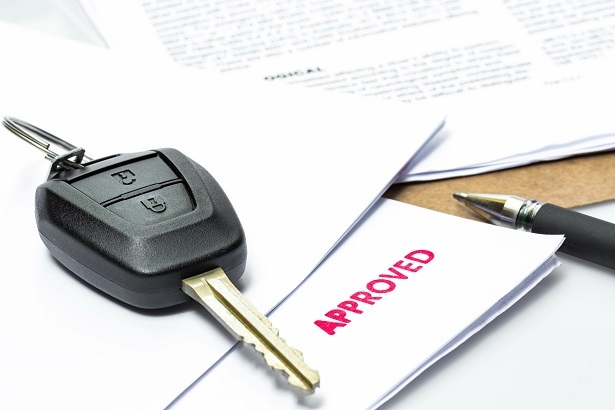The market is tough right now for used cars due to supply chain issues, microprocessor delays, and the sheer demand in the new car market. That's driving used car prices up. But you can still find a good used car at a good price if you're willing to do the research and be persistent in the hunt. Buying used offers several advantages over buying a brand new car including, a lower rate of depreciation, and more selection. Keep in mind that used car loans typically have higher interest rates and somewhat uncertain reliability dependent on prior ownership.To help you navigate your used car purchase and make the best choice for you and your family, here are five important things to do when buying a used car.
1. Create a Budget and Stick With It.

The average new car price is around $47,000 now, which is staggering. You also have to watch out for elevated used car prices, so be aware and compare. The average used car price hit a record of $24,467 a couple of years ago, and it keeps rising for the reasons we mentioned before.
To avoid buying a vehicle you can't afford, you should create a budget. Look for more than one make and model across a few production years, and see what works for your income level. There are many formulas out there that tell you how much car you can afford. Most financial experts recommend the 20% rule when budgeting for a car. This means no more than 20% of your take-home pay should go towards owning the vehicle. The 20% involves more than just the monthly loan payment, and you should factor in insurance, and maintenance costs. If you are taking out a loan for the car, you'll want to plan for a down payment of at least 10% and also budget for the monthly payments.
2. Get Pre-Approved for a Car Loan

Most people will decide to finance their new used vehicle. If you apply for a loan, keep in mind that the auto loan interest is the second largest expense when buying a car. Do your research on used car loan rates before you decide to take the plunge.
Financing a used vehicle will result in higher rates than buying new, when your credit is less than excellent. The reason for the difference is because the condition of used cars is less predictable than new ones, and most used cars are not still under warranty. If the vehicle becomes undrivable, the borrower is less likely to pay off the loan.
Shop around for auto financing to get the best deal. Take the time to apply for pre-approval for a car loan so you know what you can afford. Choose the lender with the lowest interest rates and the best terms. Even if you choose dealer financing for your used car loan, you can use the pre-approval rates you received to negotiate a lower rate.
3. Evaluate All of Your Options

The used car market is huge, way bigger than the new car market. That means you can select brands, as well as numerous production years, as long as you don't go too far back. One great way to go is certified pre-owned car that typically come off a three year lease and still have a warranty. You can purchase from a traditional dealership, used car lot, third party company like Carvana or CarMax, or a private seller. Juse prepare to do more research and test driving.
Start by searching online search for used cars. This is the best way to conduct research across numerous outlets and vehicles. You'll have access to all this information before ever stepping foot in a dealership or used car lot. The research you do now will pay off when it comes time to buy.
4. Ask the Important Questions

Before you buy, remember not to get too excited. When it comes to used, just know that not all is as it looks. It's easy to be drawn by a pretty face. Know the red flags to look for when test driving the vehicle. Defects such as rust or dents, chips in the windshield, and worn tires might be present. You have to know what you will accept and won't. Rust should be avoided, but you can always replace the tires. Ask for a good maintenance record. Get a vehicle history report based on the VIN. If any accident reports were filed, you will know very quickly.
If you're buying from a private seller, you'll want to ask, "Are you the first owner?" "Do you have the vehicle service records?" "Do you have the title and is it clear?” and "Can I have the car inspected by a mechanic?" You'll want to evaluate the seller along with the car so you can decide if he is trustworthy and honest.
Buying from a dealership will give you more peace of mind, but you should still make sure you look through the vehicle history report and ask to get the car inspected. The last thing you want is to end up having to make expensive repairs because the car doesn't match its advertised condition or has been in a major accident.
5. Don't Be Afraid to Bargain

While new car prices are fairly straightforward, used car prices can vary drastically based on the car's model year, trim, condition, and where you buy from. This can make negotiating the price quite challenging. Luckily, you're armed with the information you gathered (outlined in tip #3) to ensure you pay a fair price.
If you're buying a used vehicle from a dealership, you'll want to steer clear of discussing your monthly payment. You should negotiate the car price, finance terms, and your trade-in separately. Allowing the salesperson to roll everything up into a monthly payment leaves a lot of room for him to raise the price.
Whether you're negotiating with a car salesperson or private seller, you should use the pricing notes you took in your research and stick to your predetermined price range. Make sure you don't reveal the price you're willing to pay right away. Always start with a lower number and expect a counter-offer from the seller. If the seller won't accept a fair offer, you should feel free to walk away. The best thing about the used car market is that there are plenty of other fish in the sea.

